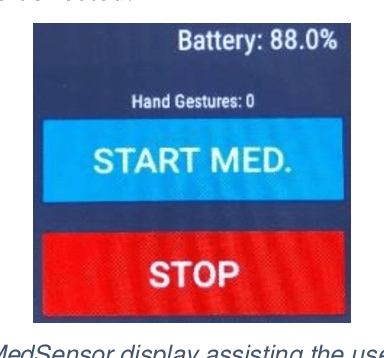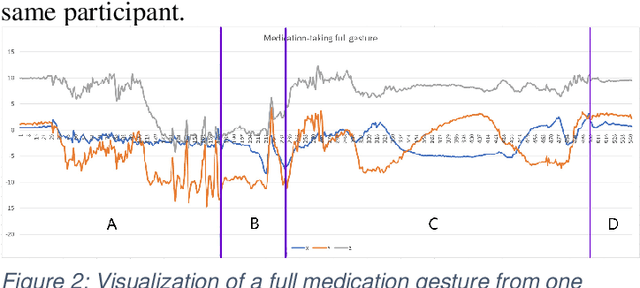MedSensor: Medication Adherence Monitoring Using Neural Networks on Smartwatch Accelerometer Sensor Data
Paper and Code
May 19, 2021



Poor medication adherence presents serious economic and health problems including compromised treatment effectiveness, medical complications, and loss of billions of dollars in wasted medicine or procedures. Though various interventions have been proposed to address this problem, there is an urgent need to leverage light, smart, and minimally obtrusive technology such as smartwatches to develop user tools to improve medication use and adherence. In this study, we conducted several experiments on medication-taking activities, developed a smartwatch android application to collect the accelerometer hand gesture data from the smartwatch, and conveyed the data collected to a central cloud database. We developed neural networks, then trained the networks on the sensor data to recognize medication and non-medication gestures. With the proposed machine learning algorithm approach, this study was able to achieve average accuracy scores of 97% on the protocol-guided gesture data, and 95% on natural gesture data.
 Add to Chrome
Add to Chrome Add to Firefox
Add to Firefox Add to Edge
Add to Edge